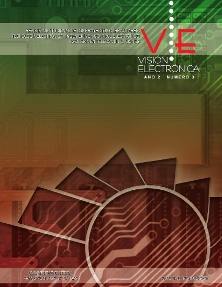DOI:
https://doi.org/10.14483/22484728.18406Publicado:
2019-03-13Número:
Vol. 2 Núm. 1 (2019): Edición especialSección:
Visión InvestigadoraRecognition of objects with feature matching and RANSAC algorithm
Reconocimiento de objetos implementando características puntuales y el algoritmo RANSAC
Palabras clave:
Image-processing, Image-Tracking, Augmented-reality, Homography (en).Palabras clave:
Procesamiento, Seguimiento, Realidad aumentada, Homografía (es).Descargas
Resumen (en)
This paper shows some results of research works: first, the implementation of artificial vision techniques for the treatment of images, such as: filtering, edge detection, morphological operations, location and recognition, and secondly the implementation of the point of interest invariant detector to scale and rotation. descriptor together with the Ransac probabilistic method to derive an object matching methodology. There are two cases of application, one of these in the domain of augmented reality. The object identification methodology that is implemented has excellent results, even with cases of occlusion; however, for MATLAB implementation it is desirable to increase the processing speed almost in real time and implementation in practical cases.
Resumen (es)
Este artículo muestra algunos resultados de trabajos de investigación: en primer lugar, la implementación de técnicas de visión artificial para el tratamiento de imágenes, tales como: filtrado, detección de bordes, operaciones morfológicas, localización y reconocimiento; en segundo lugar, la implementación del detector y descriptor de punto de interés invariante a escala y rotación junto con el método probabilístico Ransac para derivar una metodología de coincidencia de objetos. Se presentan dos casos de aplicación, uno de estos en el dominio de realidad aumentada. La metodología de identificación de objetos que se implementa presenta excelentes resultados, incluso con casos de oclusión; sin embargo, para la implementación en MATLAB es deseable aumentar la velocidad de procesamiento casi en tiempo real y la implementación en casos prácticos.
Referencias
B. Gary, and A. Kaehler. “Learning OpenCV”, Computer vision with the OpenCV library, O'Reilly Media, Inc.", 2008.
D. Forsyth and J. Ponce, “Computer Vision: A Modern Approach”, Englewood Cliffs, NJ:Prentice-Hall, 2003.
Bay, Herbert, Tinne Tuytelaars, and Luc Van Gool. "Surf: Speeded up robust features", European conference on computer vision. Springer, Berlin, Heidelberg, 2006. https://doi.org/10.1007/11744023_32
Mikolajczyk, Krystian, and Cordelia Schmid. "A performance evaluation of local descriptors." IEEE transactions on pattern analysis and machine intelligence, vol. 27, no. 10, pp. 1615-1630, 2005. https://doi.org/10.1109/TPAMI.2005.188
Zakharov, A. A., A. Yu Tuzhilkin, and A. L. Zhiznyakov. "Finding correspondences between images using descriptors and graphs", Procedia engineering, vol. 129, pp. 391-396, 2015. https://doi.org/10.1016/j.proeng.2015.12.131
S. Gomes-Nieto, and B. M. Carvalho, "Generalized preemptive RANSAC making preemptive RANSAC feasible even in low resources devices", International Conference on Computer Vision Theory and Applications (VISAPP), 2014.
S. Yang, and B. Li. "Outliers elimination based RANSAC for fundamental matrix Estimation", International Conference on Virtual Reality and Visualization, 2013. https://doi.org/10.1109/ICVRV.2013.63
Revista Semana, Orador por excelencia. Publicado el 17 ago. 2014.
Z. Bo. "Computer vision vs. human vision." Cognitive Informatics (ICCI), 9th IEEE International Conference, 2010. https://doi.org/10.1109/COGINF.2010.5599750
Cómo citar
APA
ACM
ACS
ABNT
Chicago
Harvard
IEEE
MLA
Turabian
Vancouver
Descargar cita
Licencia
Derechos de autor 2019 Visión electrónica

Esta obra está bajo una licencia internacional Creative Commons Atribución-NoComercial 4.0.
.png)
atribución- no comercial 4.0 International






.jpg)





